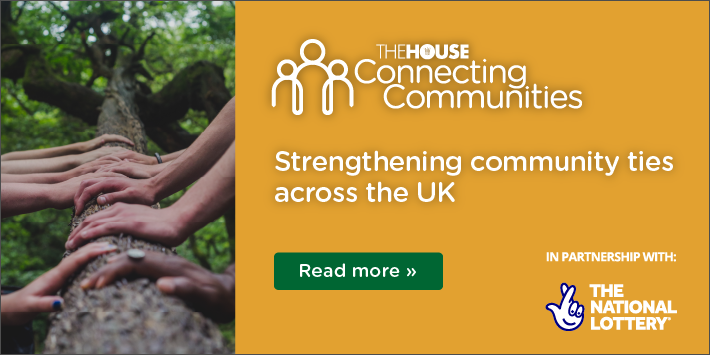Increased funding has provided an essential lifeline for those with eating disorders during the pandemic
Beat's Eating Disorder Awareness Week 2021 Artwork
Thanks to funding from the National Lottery, this Eating Disorder Awareness Week Beat can continue to support those in need.
The pandemic has had an unprecedented impact on those affected by all eating disorders and the UK’s eating disorder charity, Beat, has been adapting its services with National Lottery funding to continue to support those in need of its support.
During the first six months of the pandemic, Beat saw demand for its Helpline services increase by 97% compared to the same period the previous year as service users struggled with the impact of COVID-19.
Between May and July 2020, 28% of those reaching out to Beat’s Helpline linked coronavirus as the possible trigger for relapsing or developing symptoms. Common concerns ranged from not being able to access safe foods or shops, reduced access to treatment, worries around the lifting of lockdown and confusion around new regulations.
Beat Helpline team member, Hannah, has first hand experience of seeing how the pandemic took its toll. “During lockdown, a common feeling which came up again and again during the calls I took was one of desperation: from the inability to find foods they needed, to the prospect of being cooped up in one space without their usual coping mechanisms.”
Thanks to a National Lottery grant, Beat was able to increase its service provision to respond to this huge demand. This included a coronavirus support group, virtual coaching and support services for sufferers and carers, a new workshop for anyone caring for someone with an eating disorder and extended Helpline opening hours.
For many, Beat has offered invaluable support. Hannah saw that “support groups became places many people returned to, and still do. I am in awe of the bravery, openness, and honesty of those using the groups, who were able to get so much from them whilst also holding each other up through such a difficult time.”
This week (1-7 March 2021) is Eating Disorders Awareness Week and, this year, Beat is focusing on binge eating disorder.
More people live with binge eating disorder than anorexia or bulimia. It’s more common than most people think and can affect anyone of any age, gender, ethnicity or background. You might not think you know anyone affected by binge eating disorder, but you probably do. Binge eating disorder will affect one in 50 people in their lifetime.
One Beat service user said,
“I didn’t think [my illness] was bad enough and I was worried people wouldn’t take me seriously if I said I had binge eating disorder. There is a misconception that you have to be thin to have an eating disorder… I was petrified that something so personal and intense for me would be treated as trivial by others.
“After a binge, I would feel incredibly shameful, guilty and, in some ways, disgusting. It wasn’t something I could talk about or share with friends, because I was scared people thought I just had a lack of willpower. The shame and guilt were a vicious cycle and worsened my mental health and the value I put on my body. The low self-esteem and confidence led me to isolate more from family and friends. I could never explain how distressing bingeing was and how it occupied my mind all the time. People would get frustrated that I wasn’t ‘talking’ about my problems, but it wasn’t that I didn’t want to – I just didn’t know how to describe this overwhelming feeling.
“My relationship with food is still complex and I am not sure it will ever truly go away. I have managed to understand my triggers more and I have worked hard at ‘appreciating’ my body. I still do get tendencies to binge, and it does still happen, but I think now that I can ‘label’ it as [binge eating disorder] (rather than just overeating), it makes it easier and less confusing”
Beat provides services to encourage and empower people to get help quickly, equips family and friends with essential skills and advice, and runs campaigns to increase knowledge of eating disorders and appeal for better funding for treatment. Click here to access Beat’s Eating Disorder Awareness Week 2021’s toolkit.
Thanks to players of The National Lottery, £30 million is raised for Good Causes every week, providing funding to charities like Beat and helping communities come together.

